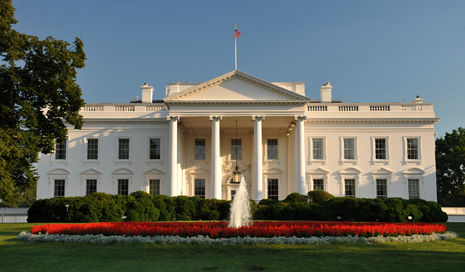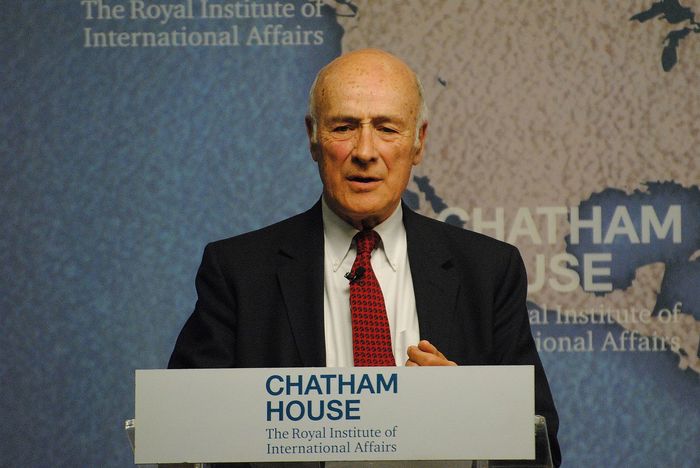Why American Politics Matters
Alfie Barrishi argues that even those living outside of the USA should nevertheless be concerned with the country’s political landscape.

My own personal fascination with American politics began in the middle of the night in November 2008, when I was woken up to the sound of the TV blaring downstairs. In the living room, my parents were celebrating the election of Barack Obama, and as I wandered in, bleary-eyed and half-asleep, I watched him give his victory speech. Even then, at the age of 7, there was something intoxicating about the way he spoke, about the way he spun the narrative of American exceptionalism. ‘To all those watching tonight from beyond our shores… a new dawn of American leadership is at hand. To those who would tear this world down: We will defeat you. To those who seek peace and security: We support you’. It was like the President of America was the President of the World.
Fast forward to 2020, and that no longer seems the case. The Trump administration’s flagrant disregard for democracy has emboldened authoritarians across the world, from Victor Orbán’s implementation of rule by decree in Hungary, to China’s contravention of the ‘one country, two systems’ principle in Hong Kong. Sheer incompetence in the State Department has destabilised relations with Iran, with US withdrawal from the Iran Nuclear Deal prompting them to increase their production of enriched uranium, and the imposition of trade sanctions in 2018 punishing Iranian civilians with economic hardship. Despite being home to just 4%* of the world’s population, the United States accounts for 23% of all deaths from Covid-19 (both statistics as of July 28th 2020). Their ability to assert a position of global leadership is rapidly evanescing.
"... American political coverage is more reminiscent of ESPN or a Big Brother after-show than of competent TV news."
So why are we all still so invested in American politics? It’s not just me who’s like this – last week I met a stranger on a Spanish-learning app, and just five minutes into our Skype call, the conversation turned to police brutality, and ‘Qué piensas sobre Trump?’. Even my Jordanian grandmother - who lives in a two-storey bungalow six thousand miles away from Washington DC - has strong opinions of the incumbent President.
Undoubtedly, the sensationalism of their elections plays a role. Back in January, both the British Labour Party and American Democratic Party were in the midst of leadership campaigns, and while Keir Starmer’s success was something of a foregone conclusion, this doesn’t fully explain why the Democratic Presidential Primaries were so much more enthralling to observe. CNN’s promotional video for the first Democratic debate featured a voiceover actor reading each candidates’ name over a pulsating drum beat, accompanied by theatrical violin motifs, as their faces appeared against a dramatic black backdrop. In the Ninth Democratic Debate, Elizabeth Warren excoriated Michael Bloomberg for his history of sexist comments, a soundbite that was played on repeat for days after the debate. In an entirely commercial media landscape, American political coverage is more reminiscent of ESPN or a Big Brother after-show than of competent TV news.
And preoccupation with American politics can be problematic when it distracts us from domestic issues. As the Black Lives Matter protests raged during June, the British government attempted to distance itself from police brutality in the United States, while quietly rejecting calls to ‘decolonise’ the school curriculum, arguing that the current curriculum offers ‘flexibility… for teachers’ to teach their pupils more about BAME history. Notably, the current curriculum also offers flexibility for teachers not to teach their pupils more about BAME history. And while the United States has the highest number of confirmed Covid-19 deaths, the United Kingdom currently leads the world in deaths per million people, second only to Belgium.
"Multilateral decarbonisation will be ineffective without US involvement..."
This is a damning indictment of a government which – like it’s American analogue – has sporadically demonstrated disdain for democratic principles. From attempting to institute a five week prorogation of parliament in October 2019 – which the Supreme Court unanimously ruled to be unlawful – to failures to investigate Russian interference in the Brexit referendum, British democracy is far more vulnerable than we imagine it to be.
But if British democracy has cracks, American democracy is outright crumbling, and has been for years. In a country where the popular vote doesn’t determine its leader; where voter suppression dictates electoral outcomes; where the minority Party can obstruct legislation in the Senate; where corporate influence shapes policymaking, and where mass incarceration has led to staggering levels of felony disenfranchisement – democracy is arguably already dead. Recent police violence against Black Lives Matter protestors and arrests by unidentified federal security forces in Portland, Oregon have been met with rightful outrage for undercutting constitutional rights to freedom of speech and freedom of assembly. The miasma of fascistic control is growing by the day.
And the United States is the best hope we have of solving the climate emergency. In 2018, the IPCC warned that net human carbon emissions must be slashed 45% by 2030 in order to limit global warming to 1.5*C by 2100. Since that report, we have increased our global carbon emissions, and at present, we’re on course for 3*C of warming by 2100, potentially more. That would submerge entire areas of London, Vietnam, Bangladesh and Cambridge as soon as 2050.
The United States is responsible for 14% of total annual CO2 emissions. That’s more than twice as much as India, four times as much as Japan, and twelve times more than the UK. Multilateral decarbonisation will be ineffective without US involvement, and in a competitive global market driven by short-termism and fairy tales of eternal economic growth, we cannot reasonably expect that China – the world’s largest carbon emitter – will decarbonise while its main trading competitor continues blithely reaping benefits from fossil fuels.
As the 2020 election looms, the urgency of removing the Republicans and installing the Democrats as the governing party grows. The Democratic Party’s platform and their approach to governance, which includes - among other things - a proposed increase in the corporate tax rate and a commitment to reducing the racial wealth gap, is one to be supported. Importantly, however, I’m no fan of Joe Biden. I have strong apprehensions that he’s far more corporatist than he claims to be, and that he’s an advocate of political incrementalism at a time when sweeping reform is more vital than ever. Add to this his ‘tactility’ with women and Tara Reade’s sexual assault allegations, and you’re left with a candidate whose success in the Democratic primaries deeply demoralized me.
But a Biden administration would usher in the return of a significantly less chaotic US foreign policy, which is necessary to quell the dictatorial ambitions of Xi Jinping, and to prevent outright war with Iran. If Democrats win the House, the Senate, and the White House, there is at least a possibility of multilateral action on climate change. In recent weeks, he has shown signs of progress, announcing a $2 trillion climate and jobs plan which aims to decarbonise the US electricity system by 2035, and lay the groundwork for net-zero carbon emissions by 2050. For all his shortcomings, his election would represent a kind of necessary hope.
The world will undoubtedly be paying close attention on November 3rd. I hope you will be too.
For any US citizens who are currently unregistered to vote: https://votesaveamerica.com/register/
*Statistics calculated by the author using the hyperlinked websites.
 News / Cambridge academics stand out in King’s 2026 Honours List2 January 2026
News / Cambridge academics stand out in King’s 2026 Honours List2 January 2026 Interviews / You don’t need to peak at Cambridge, says Robin Harding31 December 2025
Interviews / You don’t need to peak at Cambridge, says Robin Harding31 December 2025 Comment / What happened to men at Cambridge?31 December 2025
Comment / What happened to men at Cambridge?31 December 2025 News / Varsity’s biggest stories of 202531 December 2025
News / Varsity’s biggest stories of 202531 December 2025 Features / “It’s a momentary expression of rage”: reforming democracy from Cambridge4 January 2026
Features / “It’s a momentary expression of rage”: reforming democracy from Cambridge4 January 2026










